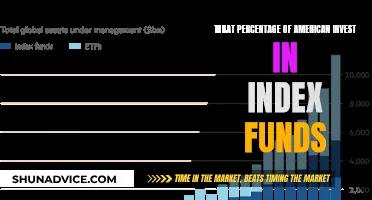
Private equity is a form of investment that takes place outside of the public stock market. It involves three parties: investors, private equity firms, and the companies that private equity firms invest in. Private equity funds are managed by private equity firms, which pool investors' money to invest in various private equity instruments, such as buyouts or venture capital.
Private equity is a way for accredited investors and institutional investment firms to diversify their portfolios and take on more risk in exchange for the potential to earn higher returns than they might by investing in public companies.
Private equity funds may sometimes use debt to 'leverage' their investments. In particular, certain funds focus their investment on a single public company, buying the entire entity and effectively turning the company back into a privately owned business as a result of the transaction.
Private equity funds are not registered with the Securities and Exchange Commission (SEC) and are therefore not subject to regular public disclosure requirements.
| Characteristics | Values |
|---|---|
| Investment type | Private equity funds are a type of pooled investment vehicle. |
| Investment target | Private equity funds invest in private companies. |
| Investment structure | Private equity funds are managed by private equity firms, which act as advisers. |
| Investment strategy | Private equity funds typically take a controlling interest in a company and engage actively in its management and direction to increase its value. |
| Investor type | Private equity funds are open to accredited investors and qualified clients, including institutional investors and high-income and high-net-worth individuals. |
| Investment time horizon | Private equity funds have a long-term investment horizon, typically of 10 or more years. |
| Investment risk | Private equity funds are considered high-risk investments due to their illiquidity and finite durations. |
| Investment returns | Private equity funds seek to generate returns by enhancing the performance of their portfolio companies, such as by strengthening the management team, acquiring new businesses, or streamlining operations. |
| Investment fees | Private equity funds charge management fees, typically 2% of fund assets, and may also receive a share of profits as incentive compensation. |
What You'll Learn

Private equity vs public equity
Private equity and public equity are two different types of investments with distinct characteristics and considerations for investors. Here are some key differences between the two:
Nature of Investment:
Private equity refers to an investment in a private company, often through private equity funds that cater to high-net-worth individuals or institutional investors. These funds pool money from multiple investors to invest in private companies, and they often focus on long-term investments, such as startups. On the other hand, public equity refers to ownership in publicly traded companies, which are available to anyone with an investment account. Public equity investments can be made by buying shares in individual companies or through mutual funds and exchange-traded funds (ETFs).
Investor Accessibility:
Private equity investments are typically only available to accredited investors, who meet certain criteria in terms of income, net worth, or investment licenses. In contrast, public equity is accessible to a wider range of investors, as anyone with an investment or brokerage account can participate.
Risk and Returns:
Private equity investments are considered high-risk, with a chance of higher returns compared to public equity. Private equity often invests in startups or less established companies, which can offer greater potential returns but also carry a higher risk of losing money. Public equity, on the other hand, is generally considered lower risk, especially when investing in a well-diversified portfolio.
Liquidity:
Private equity funds are highly illiquid, with investors committing their money for long periods, typically ranging from 10 to 12 years. In contrast, public equity offers higher liquidity, as investors can buy and sell public shares at any time, providing easy conversion of equity investments into cash.
Regulation and Reporting:
Public companies are subject to stricter regulation and reporting requirements, such as regular filings of financial reports to comply with Securities and Exchange Commission (SEC) regulations. Private companies, on the other hand, have more flexibility and fewer restrictions from regulators, allowing them to focus on long-term strategic goals without the pressure of quarterly earnings expectations.
Fees:
Private equity funds tend to have higher fees compared to public equity investments. The higher fees in private equity are often associated with the active management and expertise provided by the private equity fund managers.
Investor Influence:
In private equity, investors may have the opportunity to play an active role in the management of the company, especially if they acquire a controlling interest. In contrast, public equity investors typically have a more passive role, as their influence is diluted by the larger number of shareholders.
Investment Horizon:
Private equity funds usually have a finite investment horizon, typically ranging from 10 to 12 years, during which capital is committed for the long term. Public equity investments, on the other hand, offer more flexibility in terms of investment horizons, as investors can buy and sell shares at any time.
Company Stage and Growth:
Private equity investments often target companies at an earlier stage of growth, including startups and small businesses that are yet to meet the requirements for public ownership. Publicly owned companies, on the other hand, tend to be more established, mature businesses with consistent revenue, strong management teams, and long-term growth potential.
Investor Protection:
Public equity investments provide greater protection for investors, as they are subject to regulatory oversight and have established procedures for trading and dispute resolution. Private equity investments, being less regulated, offer limited protection for investors, and there is a higher risk of losing money.
Unlocking Private Equity: Retail Investor Strategies
You may want to see also

The role of private equity firms
Private equity firms are investment management companies that provide financial backing and make investments in the private equity of startups or existing operating companies. They aim to make a profit on their investments.
Private equity firms raise funds from institutional investors, such as pension funds, insurance firms, and endowment funds, as well as other private equity funds and high-net-worth individuals. They then use this capital to invest in or buy smaller companies, increase their value, and sell them at a profit. This process can take several years and carries high risks.
Private equity firms have three critical functions: deal origination and transaction execution, portfolio oversight and management, and cost-cutting and liquidations. They identify and pursue investment opportunities, conduct due diligence, and manage the companies in their portfolio to increase their value. This often involves improving operations, expanding market reach, or introducing new products and services.
Private equity firms also play a crucial role in the economy by infusing capital into struggling companies, potentially saving them from bankruptcy and preserving jobs. They have the financial resources and strategic expertise to carry out necessary changes and drive growth.
The largest private equity firms include The Blackstone Group, Kohlberg Kravis Roberts, and Goldman Sachs Principal Investment Group.
Exploring EFT Investment Opportunities with Fidelity
You may want to see also

The risks of private equity
Private equity investments are a high-risk endeavour, and investors need to be aware of the possibility of losing all their money. Here are some of the key risks:
Operational Risk:
This is the risk of losses stemming from inadequate processes and systems within the organisation. It is a concern for investors regardless of the specific asset class.
Funding Risk:
Also known as investor default risk, this refers to the possibility that investors are unable to provide their committed capital. Private equity funds typically don't call upon all the capital at once, but rather draw on it as needed for specific investments. When faced with a funding shortfall, investors may be forced to sell illiquid assets to meet their commitments.
Liquidity Risk:
Private equity investors are locked into their investments for extended periods, typically between five and ten years, or even longer. During this time, they are unable to redeem their capital. The lack of an active market for these investments means it's challenging to estimate when the investment can be realised and at what valuation.
Market Risk:
Private equity investments are subject to various market risks, including broad equity market exposure, geographical and sector exposure, foreign exchange rates, commodity prices, and interest rates. The infrequent valuations of these investments, often done quarterly, and the subjective nature of the assessments, add to the complexity. Ultimately, the market prices of publicly listed equities at the time of selling a portfolio company will impact the realisation value.
Capital Risk:
This risk is closely related to market risk. While market risk pertains to the uncertainty of unrealised gains or losses, capital risk is the possibility of incurring a realised loss of the original capital at the end of a fund's life. It encompasses the risk of all portfolio companies experiencing a decline in value, potentially dropping to zero.
Company Failure:
The success of private equity investments depends on the performance of the underlying companies. The failure of these companies, which could result from poor management or other factors, can lead to significant losses for investors.
Regulatory and Compliance Risk:
Private equity investments are subject to regulatory and compliance risks, which can impact the ability to structure and manage investments effectively.
Management Risk:
The success of private equity funds relies heavily on the expertise and capabilities of the fund's general partner and/or investment manager. Changes in personnel or their inability to perform can adversely affect the fund's performance.
Leverage Risk:
Private equity funds often use leverage, including loans and derivative securities, to amplify their returns. However, this also increases the potential for losses, especially during adverse market conditions.
Industry and Market Conditions:
The performance of private equity investments is tied to industry and market conditions. Interest rates, economic activity, and competition from other investors can impact the availability and valuation of investment opportunities.
Given the inherent illiquidity and long-term nature of private equity investments, investors need to carefully consider these risks before committing their capital.
Explore Short-Term Investment Funds: Quick Returns, Low Risk
You may want to see also

The benefits of private equity
Private equity (PE) is a high-risk, illiquid, and finite investment class that can offer several benefits to investors. Here are some of the key advantages of investing in private equity:
- Higher Returns: Private equity has historically outperformed public markets across various time horizons. It has also shown strong relative performance when public equities falter. This means that investing in private equity can potentially lead to higher returns compared to traditional public market investments.
- Diversification: The number of public companies is shrinking, highlighting the need for diversification. Private equity offers access to a wide and diverse pool of private market companies, providing potential diversification benefits to investors.
- Value Creation: Private equity firms have a strong motivation to add value to their portfolio companies as they aim to sell their stake for a profit. They employ various strategies, such as reorganisation, cost reduction, technological improvements, and the introduction of ESG frameworks, to increase the value of their investments.
- Longer Strategic Horizon: Private equity funds typically have a longer investment horizon, ranging from 10 to 12 years. This longer time frame allows private equity firms to focus on long-term value creation and high growth opportunities rather than short-term incremental improvements.
- Access to Capital for Private Companies: Private equity provides an alternative source of capital for startups and small privately held companies that may struggle to raise working capital through traditional means. It connects these companies with professionals who have expertise in their industry and understand the unique needs of young, private companies.
- Flexibility and Innovation: Private equity allows companies to pursue more innovative growth strategies without the pressures of quarterly reporting and shareholder scrutiny associated with public markets. This flexibility enables companies to implement progressive growth strategies and make bold decisions that may be too radical for public investors.
- Active Management: Private equity funds are actively managed by general partners who are heavily involved in both the strategic goals and day-to-day operations of the companies they invest in. This active management approach aims to maximise the value of the companies and, ultimately, the returns for investors.
- Specialist Expertise: Private equity firms often have specialist expertise that can benefit portfolio companies. They may help with developing an e-commerce strategy, adopting new technology, or entering new markets, leveraging their knowledge and networks to drive growth.
Mortgage Investment Funds: How to Invest in Real Estate
You may want to see also

How to invest in private equity
Investing in private equity is a high-risk, illiquid investment with finite durations. Private equity funds are generally only open to institutional investors or high-net-worth individuals. Here are some ways to invest in private equity:
Direct Investment
To directly invest in private equity, you will need to work with a private equity firm. These firms will have their own investment minimums, areas of expertise, fundraising schedules, and exit strategies, so it is important to do your research to find one that aligns with your goals and financial capabilities.
Private Equity Exchange-Traded Funds (ETFs)
If you are unable to meet the minimum investment requirements of private equity funds, you can still take part in private equity investments through private equity ETFs. These funds offer exposure to publicly listed private equity companies, allowing you to benefit from their success without needing to front a large minimum investment.
Funds of Funds
A fund of funds holds shares of many private partnerships that invest in private equities. This approach can provide greater diversification and potentially lower risk compared to individual private equity investments. However, there is an additional layer of fees paid to the fund manager, and the minimum investments can be high, typically ranging from $100,000 to $250,000.
Special Purpose Acquisition Companies (SPACs)
SPACs are publicly traded shell companies that make private equity investments in undervalued private companies. However, SPACs can be risky as they may only invest in a single company, providing limited diversification. They may also be under pressure to meet investment deadlines, potentially leading to hasty decisions without thorough due diligence.
Crowdfunding
Crowdfunding platforms allow individual investors to contribute relatively small amounts of capital to private equity investments, particularly for new ventures. While these investments can be highly risky, they provide an opportunity to participate in private equity with a lower financial barrier to entry.
It is important to note that private equity investments are typically held for the long term, often for at least 10 years. Additionally, private equity funds are not registered with the Securities and Exchange Commission, resulting in less transparency and higher risk.
Vanguard Index Funds: Smart, Secure, Long-Term Investment Options
You may want to see also
Frequently asked questions
Private equity (PE) is stock in a private company that does not offer stock to the general public. It is a form of investment that takes place outside of the public stock market, where investors gain an ownership stake in private companies.
Private equity investing involves three parties: investors, private equity firms, and the companies that private equity firms invest in. Investors supply the capital, and the private equity firm manages and invests that money via a private equity fund. The fund is then used to invest in various private equity instruments, such as buyouts or venture capital.
Private equity investments are considered high-risk and illiquid. They are also not registered with the Securities and Exchange Commission, so private equity firms are not required to publicly disclose information about their funds. Additionally, private equity investments typically have a long-term investment horizon, often ranging from 10 to 12 years, making them less liquid than public market assets.







